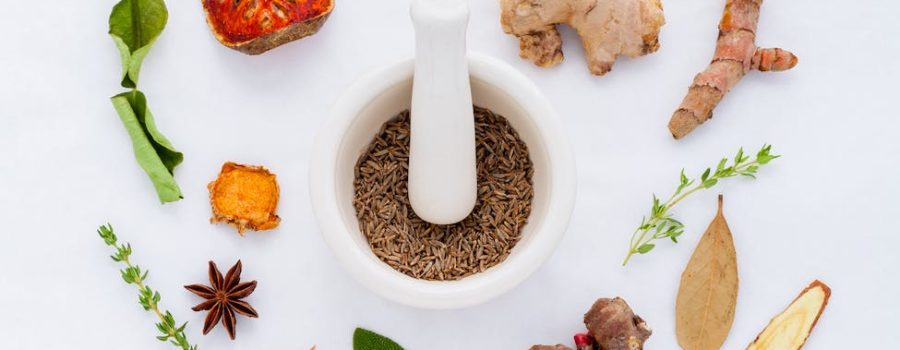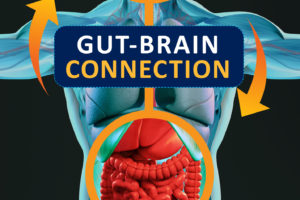As consumer interest in natural mental health remedies continues to grow, there has been an explosion of different supplements designed to reduce stress and anxiety.
However, there are many concerns with these supplements. For example, many of these formulas contain ingredients that aren’t actually evidence-based. And you may be wasting your money on an ineffective product.
Additionally, there are herbs out there that have questionable safety profiles. Just because something is “natural” doesn’t mean it’s safe.
That’s why I’m writing this article to give you an inside look at the top herbs and supplements that are safe and effective. I will review the herbs and supplements that are research-backed, effective, and generally safe to consume.
I actually wrote a similar article on this a while back but wanted to write a more updated version to give you the most up-to-date look on this issue.
Top 5 Herbs & Supplements for Stress and Anxiety
Let’s get right to it. Based on the data, the top five herbs and supplements worth buying for stress and anxiety are:
- Lavender (Silexan)
- L-Theanine
- Ashwagandha
- Rhodiola
- Magnesium
I know that there are many other supplements out there. And there are certainly more than just these five that are effective. But in order to limit confusion and reduce decision fatigue, I simply wanted to go over the most bang-for-your-buck products.
Continue reading below to see why these may reduce stress and anxiety.
Lavender

Lavender is most known for its sweet, pleasant smell. And it is often used aromatically as an essential oil. Or the oil is applied topically to the skin.
However, the most potent form of lavender for anxiety and stress is actually an oral capsule. The most well-researcher oral lavender supplement is a form called Silexan.
Lavender may work in a few key ways. The first is by increasing GABA in the brain. GABA is an inhibitory neurotransmitter (brain chemical), which means it can help slow down brain activity. Lavender has other inhibitory actions in the brain, such as the downregulation of voltage-dependent calcium channels.
As well, lavender may increase brain plasticity which could have benefits for depression.
Evidence shows that lavender (Silexan) is effective for generalized anxiety disorder, subclinical anxiety, and numerous related problems, such as:
- Sleep disturbances
- Tension and other physical anxiety symptoms
- Decreased quality of life
Recommended dosage based on research: 80 to 160mg
Optimal Form: Silexan
L-Theanine

Another supplement for anxiety and stress is l-theanine.
L-theanine is an amino acid found in green tea leaves. It has been used for centuries for general well-being in Traditional Chinese Medicine (TCM) and other medicine systems.
Scientific evidence shows that theanine increases GABA and, to a lesser degree, serotonin. This may result in improved relaxation and mental well-being.
Additionally, theanine increases alpha waves in the brain, which are associated with a calm, yet alert state of mind (think of right before bed before you drift off).
Recent data suggests that theanine is effective for reducing stress and anxiety in people exposed to moderate stress. And it also appears to improve sleep quality in some cases.
Recommended dosage based on data: 200 to 400mg (up to 800mg for severe anxiety)
Form to choose: Preferably Suntheanine
Ashwagandha

Ashwagandha is one of the most popular herbal medicines in Ayurveda. And it is also a suitable supplement for anxiety and stress. This herb acts as an adaptogen, meaning it helps the body respond to and manage stress.
More specifically, ashwagandha can help maintain the integrity and function of neurotransmitters, hormones, and bodily systems when faced with stress.
In particular, ashwagandha has antioxidant effects and is helpful for reducing cortisol (a major stress hormone), increasing GABA, and restoring the HPA axis.
Out of all of the benefits of ashwagandha, it seems most effective for reducing stress and anxiety levels. And this may lead to a reduction of numerous mental and physical stress-related symptoms, such as fatigue, depression, low testosterone, and poor sleep
Recommended dosage according to research: 250 to 600mg (up to 1,000mg or more in some cases)
Optimal Form: Preferably KSM-66
Rhodiola

Rhodiola is a medicinal herb that has been used for centuries in many countries, such as Russia, Germany, and China.
Like ashwagandha, rhodiola is a potent adaptogen, so it helps the body manage stress. The compounds in rhodiola exert many anti-inflammatory and antioxidant effects. And it also decreases cortisol, restores hormonal health, and can improve aspects of brain health.
There is evidence that rhodiola significantly reduces stress levels and this has a carry-over effect on many other conditions. For example, by reducing stress, rhodiola may:
- Reduce anxiety, fatigue, depression and burnout
- Improve cognitive functions
- Aid athletic performance
- Much more
Recommended dosage based on research: Around 300 to 600mg
Optimal Form: One that includes 3% rosavins and 1% salidroside
Magnesium
The last supplement for anxiety and stress that I want to talk about is magnesium.
Magnesium is an essential mineral involved in hundreds of reactions in the body. Most relevant to this article is that magnesium plays a role in the stress response and is used up heavily during periods of stress (whether that’s physical or mental).
Yet, many people don’t get enough magnesium, which increases perceived stress, causing a vicious cycle.
Additionally, magnesium helps to increase GABA in the brain and reduce brain overactivity. Plus, magnesium is necessary for proper muscle contraction and relaxation.
There is solid evidence that shows magnesium supplementation can reduce anxiety and stress. And it may also reduce depression and improve sleep, especially in people who are deficient and/or chronically stressed.
Recommended dosage based on data: 200 to 600mg (up to 1,000mg or more in some cases)
Optimal Form: Any chelated form, but particularly glycinate or taurate (avoid oxide!)
Conclusion

That wraps up my review of the top five supplements for managing stress and anxiety levels.
Now, it is most important to manage stress and anxiety through lifestyle means first, such as getting enough sleep, eating a nutrient-rich diet, having fun, enjoying social connections, getting outside, etc.
But for many people, these components are often not enough to fully address stress and anxiety. And sometimes stress and anxiety could make the very things that are helpful much more difficult to do (e.g. sleeping enough, socializing).
That’s why supplements can play a pivotal role in addressing stress and anxiety. They just have to be well-researched and backed by quality data. And you can rest easy knowing that all of the supplements I’ve mentioned in this article fit those criteria.
But as always, consult your doctor or healthcare practitioner before starting any supplement regimen.




